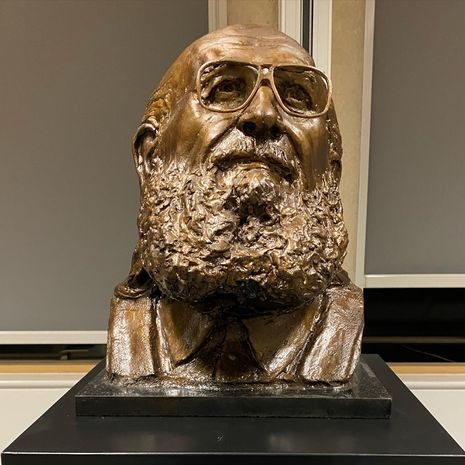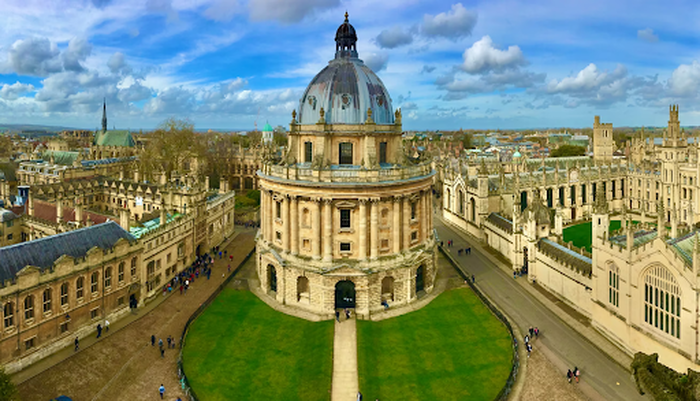Education Faculty installs sculpture of Brazilian educator to resist ‘attacks on education’
Cambridge has become the first institution outside Brazil to display a sculpture of Paulo Freire, a socialist and educational theorist

Cambridge’s Education Faculty has installed a sculpture of Brazilian educator Paulo Freire. The sculpture is part of a series, and Cambridge is the first institution outside Brazil to display one.
The sculpture has been displayed to protest challenges to freedom that academic communities around the world have faced, including from President Jair Bolsonaro’s government in Brazil.
Freire was a socialst and educational theorist whose 1968 book Pedagogy of the Oppressed is still one of the most cited works in history. The centenary of his death this year has been marked at the Faculty by a fortnight of celebrations where hundreds of scholars have met to discuss his life and work.
His ideas and their focus on teaching critical thought in school have recently faced attacks from the Brazilian government, with President Bolsonaro pledging “to use a flamethrower at the Ministry of Education to get Paulo Freire out of there”.
The bronze bust depicting Freire is a gift from the Brazilian Landless Workers’ Movement (MST) and was arranged by Latin American students at Cambridge. It is one of a series of commissioned by the MST for display in educational institutions to protect Freire’s legacy, and the first to be received by an institution outside Brazil.
Its installation is intended as a display of solidarity with educators in Brazil but also, according to the Education Faculty’s statement about the statue, a challenge to attacks on education by right-wing populism around the world.
Researchers have warned that oppression of educators in countries such as Brazil share much with “culture war” attacks on education and progressivism more generally.
Head of the Faculty of Education Professor Susan Robertson, said: “Around the world, academic communities are facing challenges to their freedom that they never expected to have to defend. Freire offers a way forward for educators striving to resist this. ”
Alexandre da Trindade, a Brazilian doctoral student and member of the Cambridge Latin American Research in Education Collective, stated: “Academia is under attack in my country and for an internationally-recognised university to adopt Freire’s image is an important sign of solidarity with Brazilian scholars. It represents a shared set of beliefs in the emancipatory role of education and critical pedagogy.”
 News / Colleges charge different rents for the same Castle Street accommodation2 March 2026
News / Colleges charge different rents for the same Castle Street accommodation2 March 2026 News / News in Brief: waterworks, wine woes, and workplace wins 1 March 2026
News / News in Brief: waterworks, wine woes, and workplace wins 1 March 2026 News / Angela Merkel among Cambridge honorary degree nominees27 February 2026
News / Angela Merkel among Cambridge honorary degree nominees27 February 2026 News / Climate activists protest for ‘ethical careers policy’1 March 2026
News / Climate activists protest for ‘ethical careers policy’1 March 2026 News / King’s hosts open iftar for Ramadan3 March 2026
News / King’s hosts open iftar for Ramadan3 March 2026









